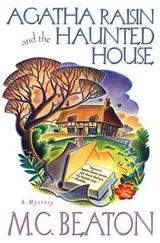Lynne Tillman - Haunted Houses
Здесь есть возможность читать онлайн «Lynne Tillman - Haunted Houses» весь текст электронной книги совершенно бесплатно (целиком полную версию без сокращений). В некоторых случаях можно слушать аудио, скачать через торрент в формате fb2 и присутствует краткое содержание. Год выпуска: 2011, Издательство: Red Lemonade, Жанр: Современная проза, на английском языке. Описание произведения, (предисловие) а так же отзывы посетителей доступны на портале библиотеки ЛибКат.
- Название:Haunted Houses
- Автор:
- Издательство:Red Lemonade
- Жанр:
- Год:2011
- ISBN:нет данных
- Рейтинг книги:5 / 5. Голосов: 1
-
Избранное:Добавить в избранное
- Отзывы:
-
Ваша оценка:
- 100
- 1
- 2
- 3
- 4
- 5
Haunted Houses: краткое содержание, описание и аннотация
Предлагаем к чтению аннотацию, описание, краткое содержание или предисловие (зависит от того, что написал сам автор книги «Haunted Houses»). Если вы не нашли необходимую информацию о книге — напишите в комментариях, мы постараемся отыскать её.
, Tillman wries of the past within the present, and of the inescapability of private memory and public history. A caustic account of how America makes and unmakes a young woman.
Haunted Houses — читать онлайн бесплатно полную книгу (весь текст) целиком
Ниже представлен текст книги, разбитый по страницам. Система сохранения места последней прочитанной страницы, позволяет с удобством читать онлайн бесплатно книгу «Haunted Houses», без необходимости каждый раз заново искать на чём Вы остановились. Поставьте закладку, и сможете в любой момент перейти на страницу, на которой закончили чтение.
Интервал:
Закладка:
Her father’s family, Larry insisted, was full of lively, dramatic people. Melodramatic maybe. The facts about her father’s family were, Jane supposed, not unusual. They arrived in this country and couldn’t speak the language. The oldest brother, born in Russia, escaped on foot, crossing a river on his uncle’s back. The two younger brothers — they are a family of sons — Larry and Marty, her father, were born in America. The family had escaped so that the men wouldn’t have to fight in the Czar’s army. There are then three sons, a flamboyant, perhaps mad mother and a benign father who doesn’t live with them. Kicked out. Or lives with them sometimes. He visits once a week. They cohabit, Larry puts it, once a week. Still, the mother advertises for a husband in the Yiddish newspapers, which none of the sons can read. They are not taught the language, nor are they bar mitzvahed. It’s early in the twentieth century and they want to be Americans. No one knows what an American is and across the Atlantic Gertrude Stein is working on that very problem. But they wouldn’t know this.
From her view behind the Barbie doll counter Christmas was a TV series of family conflicts. A little girl points her finger at a Barbie doll outfit and her mother points to another. “Don’t you want this one?” The little girl looks at the other one. She starts to want both. She can’t make up her mind. Her mother gets angry. “Just choose one. You can’t have them both.” Close up on the child’s face, just about to cry. They buy the one the mother wanted.
The floor supervisor, a young dark-haired man, wears a white boutonniere as all the supervisors do. Some of the salespeople have worked at Macy’s ten (red flower) or twenty (white flower) years. The saleswomen remind Jane of sturdy ships that sail into and out of harbor, the fifth floor, resignation their port of call. Resignation keeps her alert to resignation. Frank, the floor supervisor, flirts with her, giving her knowing, we-shouldn’t-be-working-here looks to which she responds coyly. She decides he’s the one. He will be the man, not Jimmy. She knows him too well, and anyway, he’s just a child. He’s also too skinny.
Grandma Rose wears her hair piled on top of her head. It’s a big mess, always falling down, the combs slipping out. She’s constantly raising her hands to her head to push them back in and it’s always futile. She married her husband in Russia quickly, after the son of the lord who owned the land they worked took a liking to her and wanted to kiss her hand. She gave him her hand but wouldn’t take off her glove because he was a Christian. She was supposed to have been beautiful. Jane tried to imagine her grandmother, who later covered newspapers with towels and bits of cloth to keep the people in the pictures warm, extending a gloved hand to the lord’s son. The two images could be placed side by side, but could not be superimposed to make a whole, and looking from one to the other was like reading two different languages in the same sentence when you don’t know one of them. When she arrived in America, New York, she was a young woman with a husband and child. They lived on the Lower East Side. Larry and Marty are born on Ludlow Street.
Sam Wo’s is not far from the Lower East Side. As usual it’s crowded and as usual Felix was pricking certain ideas that he had said littered the landscape. In his way he was much more romantic than Jane, but not about love, about life, which he wanted to experience madly. Madness bored Jane. She didn’t think that mad people were so great or so beautiful. Felix could talk to her about Artaud until he himself got locked up, she would resist these insights. My grandmother was mad, she told him, but you wouldn’t have wanted to spend time with her. Felix wouldn’t tell Jane anything about his family because his father was a famous artist and he thought that would make a difference. “Why should it make a difference to me?” she insisted. “I don’t want to be an artist.” “It might make a difference to Jimmy,” Felix said. Maybe Jimmy, she considered, he takes his heroes so seriously.
Everything Jimmy read conspired to equip him with outrageous notions about men, himself. Kerouac cut into the heroic grand figure but created another type, the one Jimmy aspired to. Then there was Bob Dylan. If he’d been born in the Midwest, and not Long Island, Jimmy might have had a chance to be either one of those guys. As a European, Felix argued against the tyranny of influence, of tradition, while Jimmy, an American, perceived nothing except for what he chose as influence. And Jane sat between them, stationed in the balance, drinking coffee in Ukrainian restaurants. Their arguments were often about the ineffable and she found herself speechless in the face of Felix’s libertarian absoluteness and Jimmy’s veiled masculine strivings. It was enough to be aware and that, like the Salk vaccine, would protect one from false hope, from bullshit. Jane listened as if from very far away. It seemed to have nothing to do with her.
She tried to visualize her father when he was a little boy. Hazel-eyed, with thick black hair, small for his age, he’s sent by his mother to find coal in the dark basement that may have rats in it. He’s terrified of rats and the dark basement. Being sent there by his mother was terrible, a descent into a children’s hell, the hellish imagination that grows wild when not tended. He was his mother’s favorite, Larry says, and very guilty about it. Is fear catching? Is guilt? Jane wanted to understand the patterns as eccentricities or commonplaces, to understand the ties between siblings and parents, between siblings and each other. She and her sisters, her father and his brothers. Her mother rarely talks about her family except to say that her own mother was perfect. The children of that mother don’t seem to like each other nearly as much as Larry and Marty do, their tie is remarkable, unending, intangible, in the blood, Larry says.
Right after Jimmy woke up, when his face hadn’t set yet, and he’d been up all night on speed, he thought he saw a trace of Bob Dylan. Ouspensky said a man could go mad looking at a broken ashtray, or was it a dirty ashtray, or could it be your own mirror when you look into it to see the person you wish you were. I want to be famous and she wants to be thin. What about the image reflected back at you, yourself in someone else’s mirror, a reflection you don’t recognize. Jane talked about not recognizing herself and together they took hundreds of pictures in photo booths. Jimmy had a few on his mirror. Jane posed in profile, certain that one side off her face was thinner, while Jimmy would drop his down, and look up only with his eyes, a cigarette hanging from his lips, a la Belmondo. He couldn’t understand why she was so attached to her family and bothered to remember or to write down the facts as she knew them, as she put it. He told her that and she said, It’s my family and you don’t have to understand.
One afternoon at Macy’s Jane was visited by a woman she’d barely even heard of, the wife of the Austrian friend of her sister, the one who had thought of her as a Lolita that summer when she was twelve. The visit was unannounced. The woman was small, like the man, and she and Jane drank coffee in the employee cafeteria, sitting at the counter. Jane was on her break. Like her husband, the wife was supposed to be a genius. One of the reasons for their marriage was to produce more geniuses. “We are Skinnerians,” she explained to Jane. “But we don’t work with rats anymore.” The woman looked into Jane’s face, studying it as if it were a maze. She asked if Jane liked her husband. She said with pride that her husband wanted her to meet and like the women he was interested in. “He’s interested in me?” Jane asked. “Because I don’t think of him that way. He’s nice, but I’ve never been attracted to him.” Jane announced her answers the way the woman asked the questions, objectively, disinterestedly. The woman paid both checks and said it was good to meet her, hurrying off to her next case, perhaps. Jane didn’t test well anyway.
Читать дальшеИнтервал:
Закладка:
Похожие книги на «Haunted Houses»
Представляем Вашему вниманию похожие книги на «Haunted Houses» списком для выбора. Мы отобрали схожую по названию и смыслу литературу в надежде предоставить читателям больше вариантов отыскать новые, интересные, ещё непрочитанные произведения.
Обсуждение, отзывы о книге «Haunted Houses» и просто собственные мнения читателей. Оставьте ваши комментарии, напишите, что Вы думаете о произведении, его смысле или главных героях. Укажите что конкретно понравилось, а что нет, и почему Вы так считаете.












